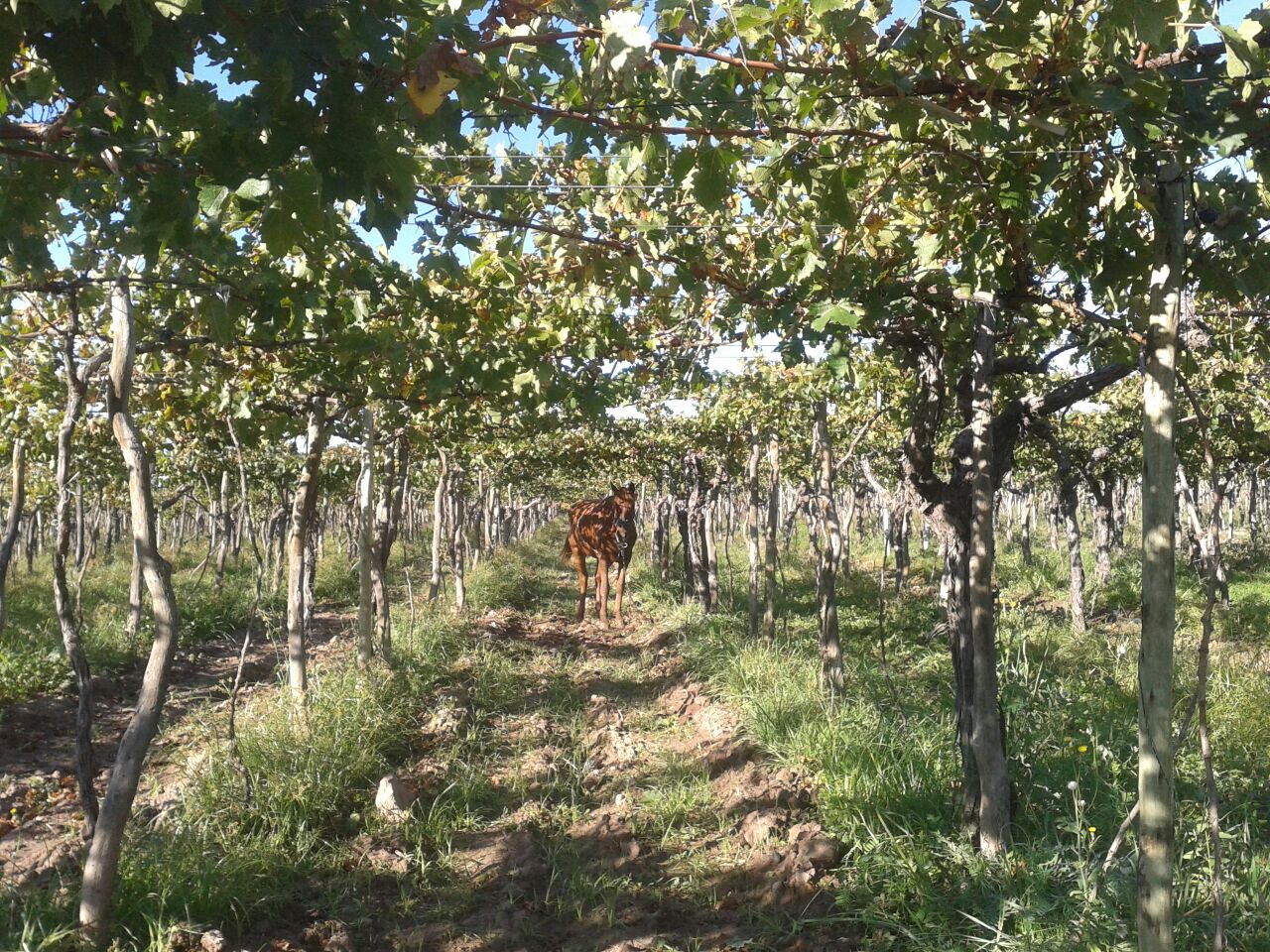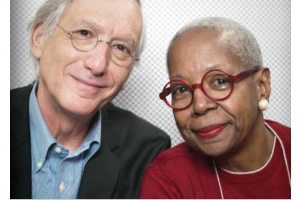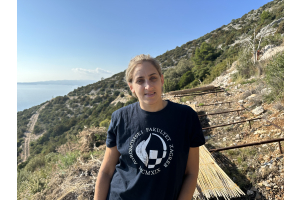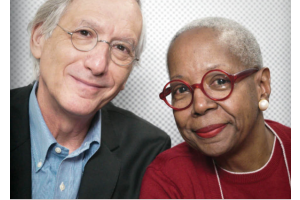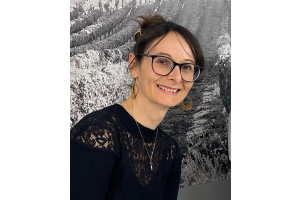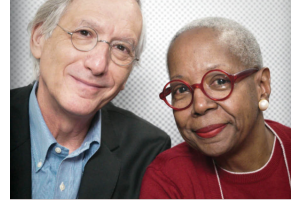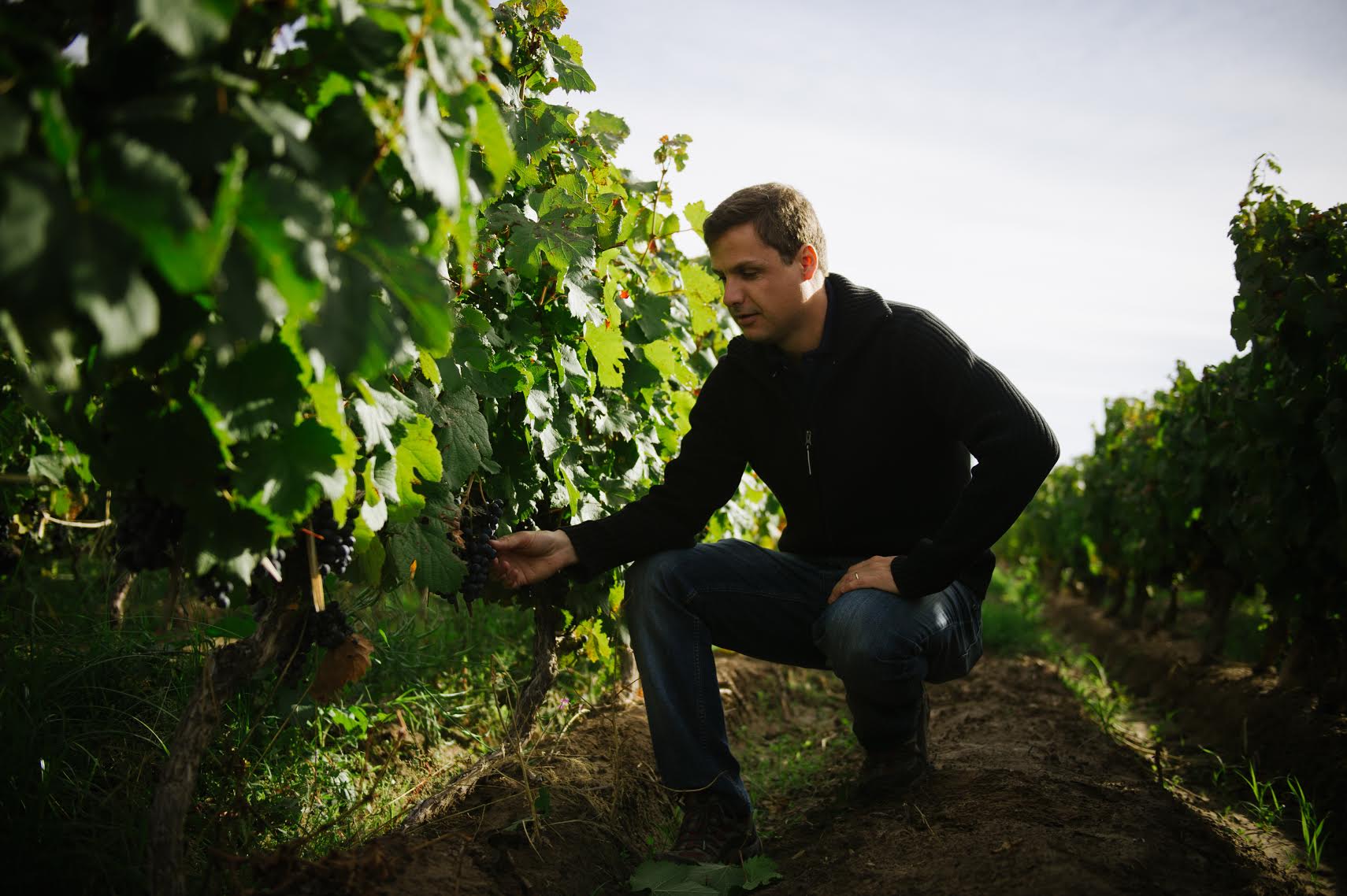
Kaiken is owned by Montes, the Chilean winery headed up by iconic winemaker Aurelio Montes. They named their Chilean venture Kaiken after the wild geese that are indigenous to Patagonia and fly over the Andes between Chile and Argentina. The firm is run by Aurelio Montes Jr. who moved full time to Chile in 2011 to oversee the Kaiken project.
We talk to Aurelio Montes Jr. about his influences as a winemaker and what it is like being a Chilean making wine in Mendoza.
Christopher Barnes: Aurelio, you come from a very famous winemaking family. What was it like to grow up with a father who is considered the most important winemaker in Chile?
Aurelio Montes Jr.: It’s a big advantage to grow up with a father who has a lot of passion in his life. It is the best school! You can study winemaking anywhere, but passion can’t be taught. My father is the best example of living a passionate life with wine.
Do you feel any pressure because of your father’s reputation?
At the beginning, yes. At the beginning people said oh he's the son of Aurelio Montes, but to be honest with you, people understood very quickly that I am a different person, I have my own style and my own personality. In the beginning, yes, but I never felt that people looked at me differently as a winemaker.
When you were growing up did you feel that there was an expectation that you would join the family business? You’re one of five children, right?
Exactly. My father always dreamed, as I do with my kids, that someone in the family would join the business. Winemaking is not only a business, it is a passion. Everyone dreamed that one day one of us would follow in our father’s footsteps and preserve the tradition. Of course, my father tried, in a very simple, strategic way to involve me in the wine industry. My other siblings do not really have the passion. They love to drink wine, but they understand that to be a winemaker you need to be passionate and devote your life to it; it’s a lifestyle. I am the only one of my siblings that has that passion. Even today, I’m very passionate about what I do. I’m training my kids for the future, hopefully!
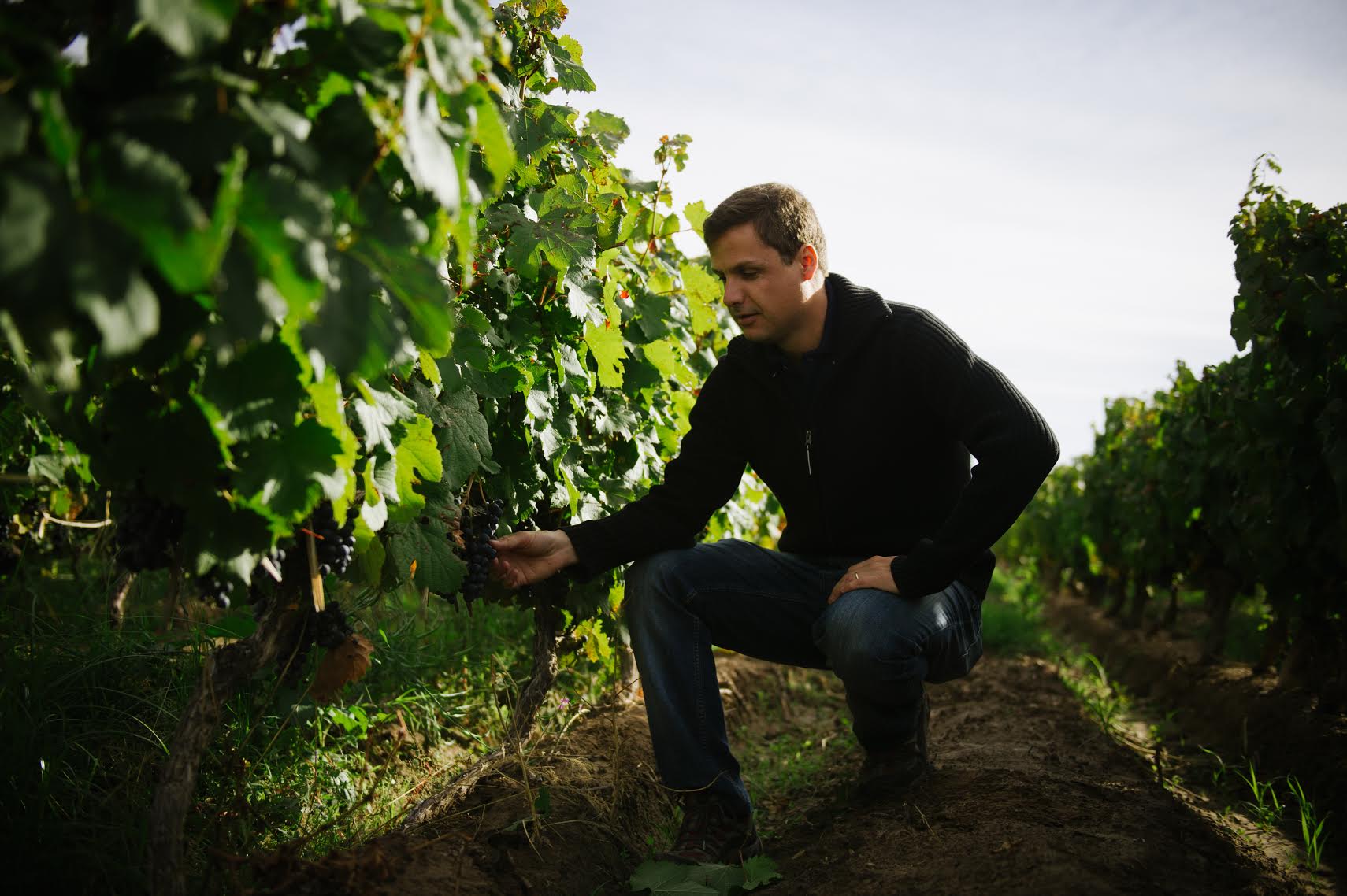
How did you evolve into the role of winemaker?
I am a country boy. I have always been interested in the outdoors. I love to ride horses, motorcycles and all things outdoors. My father positioned me in this business, step by step. I decided to study agriculture and engineering at university. In my last two years I studied winemaking, purely out of curiosity. I wanted to understand why my father was so passionate about wine. I thought, there must be something to it. And, at least I needed to understand.
To be honest with you, at that time at university, I drank very little wine, almost none. I was more focused on sports and perhaps beer. But when I studied winemaking and understood the processes and the world view of wine, I really started to fall in love with it. I moved to Australia and lived there for a year. I definitely found my passion there. Then I worked in Napa where I had a lot of fun. Perhaps not a great deal of experience in the wine industry, but I had a lot of fun meeting people going to parties, but also learning about wine. For me, that was the beginning.
Who were some of the mentors, other than your father, that kind of helped spark your flame that got you where you are?
There are a few winemakers who were really an important part of my education, of my experience. Phillip Shaw from Rosemount and then John Duval, also from Penfolds, who now has his own wine and consulting business for many wineries. These two winemakers, besides of course my father, have been mentors in terms of philosophy of work, or being efficient, and being passionate about what you do. Learning to take care of all the small details. That is what I learned from the three winemakers.
You started Kaiken in 2002. What was the idea behind that?
Kaiken was born, as you said, in the year 2002. Many people think that we moved to Argentina because it’s very close to Chile; that’s incorrect. We’re winemakers. We don’t care to fly. We don’t care to go to places. After my father and I visited Australia, New Zealand, Italy, France, Spain, Napa - we realized that Argentina was the most extreme and new country at the time. We decided to go to a really new area, one that was really underdeveloped. We all have to develop it, and to learn. When we moved there, we found a country with passion, with a unique terroir, high altitude plantations, beautiful Malbecs and other varieties, so it was a perfect place to stay. Since that time, we have been growing. In the year 2011, I moved to Mendoza, Argentina, so I am living with my family, with my kids and my wife.
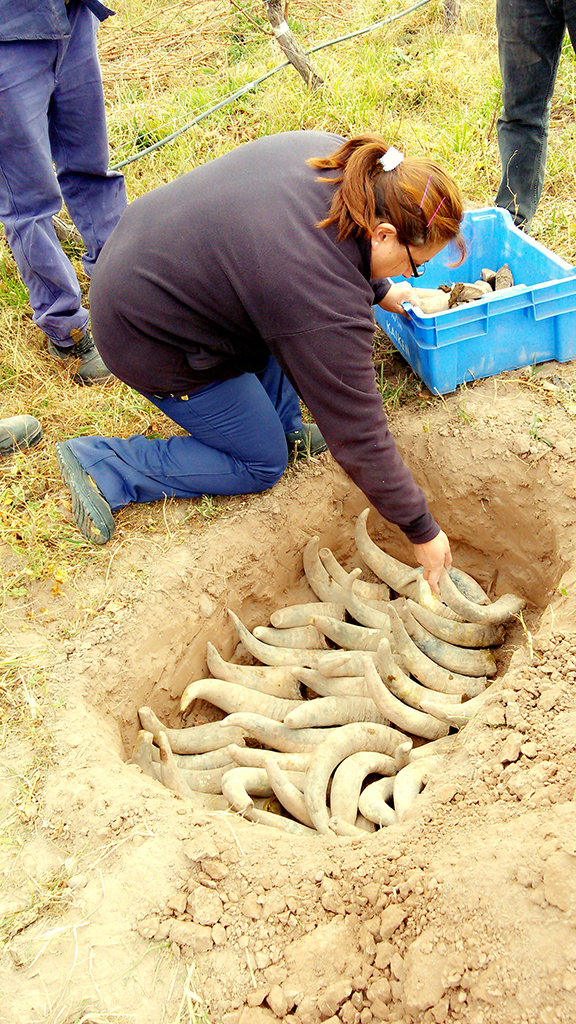
Argentina has a very strange political climate regarding the wine industry. You can’t ship wine into Argentina, is that correct?
The importations of any product is almost forbidden. The political atmosphere and economy in Argentina is not helping the wine industry. Today investments are almost zero in the industry; not only us, but everyone stopped investing money in the wine industry. Why? Because today, with 40% inflation, you can’t get any currency other than pesos. You can’t buy dollars, you can’t buy euros.
The economy’s getting really complicated. We’re not competitive. We’re trying the best we can, to be as competitive as possible. Each year is getting more and more complicated. If the administration doesn’t change, it’s going to be tough for the wine industry.
You are very focused on the external market. You distribute something like 96% outside of Argentina. That’s very unusual, isn’t it, for an Argentine winery?
It is. It’s very unusual. As Montes, we have the expertise to sell wine externally. As a company, as Kaiken, we sell to around 65 countries around the world, including Dubai, Hong Kong, Japan, the United States, almost everywhere in Latin America, Cook Island, Maldives ... 65 countries. That’s very strange in Argentina. The average winery in Argentina sells to five countries, but we sell in 65 countries. We’re very unique in that regard. I am very proud to show Argentine wines to the world. Why keep it only in Argentina? There are a lot of people that want to drink Argentine wines. We feel very proud of being able to do that.
Let’s talk about Malbec and Argentine wines. When you first came to Argentina, what were you trying to accomplish by building the winery? What sort of wines were you trying to make and how did you go about finding the areas that you would source your grapes from?
To be honest, when we moved to Argentina, we didn’t know much about Argentina. That was the most exciting part because everything was new to us. We decided not to buy not even one acre of vineyards. We decided to buy grapes for the first eight years. When we went to Argentina, we tried different varietals. Of course, like many other people, we fell in love with Malbec. Unique in terms beautiful color, but also we really love Cabernet Sauvignon. We also fell in love with Cabernet Franc, Sauvignon Blanc, Petit Verdot, Bonarda.
There are other varietals besides Malbec that work perfectly in Mendoza. The big difference between Malbec and the rest of the varietals in Mendoza is that Malbec is good almost everywhere. For other varietals, you need to find the right place. I always joke that Malbec is only for lazy winemakers because it’s so easy to find a good place. Cabernet Sauvignon, Cabernet Franc, and other varietals, you need to work. You need to shovel, to analyze the soil, to find the right place, and we’re a new country, so we don’t have 1,000 years experience. We’re still in the learning stages and every year we find new things, new styles, new places to plant. Water is getting complicated now, but Argentina is still boiling in terms of new things coming up.
In terms of the wine culture, people have been talking about a modern approach to wine. A leaner, lower alcohol style, with a little bit more finesse, which in European countries would be described as a more traditional approach to wine. What do you think of the modern versus traditional winemaking dichotomy in Argentina?
That’s a very good question. In Argentina, as I told you, we are still learning. We’re still in the process of learning, so now you’re going to find different type of wines. It’s funny because, as you said, the new styles that European people showed us, okay, the New World countries are producing the new style of wines, and now in Argentina it is a normal style, and the new style is going back to the old style. It’s a little confusing, but we’re going back to our roots. We’re going back more to the fruit: less oak, less alcohol, more fruit, more spiciness, more personality in the wines. Today, it’s confusing, but inside Argentina we call the new style, the old style.
What is your personal philosophy of winemaking?
My philosophy, first of all, is to express the real taste of the terroir, of the place where I live. For me, terroir is not only climate and soil. Every place has a terroir, wherever you go, Venezuela, Colombia, wherever you go, has a terroir. A good terroir is a good expression of a unique place for wine. That is what I love to find, the one I love to express. Not only that, but for me my style is to produce good wines.
I love to drink wine. I’m first a consumer and then a winemaker. I love to drink wine, so I am looking for new things. It could be a little crazy or more traditional but I’m looking for a wine that is friendly, with soft tannins and beautiful acidity; wine that really has personality. I hate producing wines that taste common. I love a wine that has personality, when you drink it, you say, “Wow. I want another glass.” That’s the kind of wine I love. My philosophy is adding passion to the wine, not only making liquid with alcohol, making wine with personality and adding not only soil and water but adding also humans. We make a huge difference in the process. If someone from France goes to Argentina, of course the result’s going to be different because he was born in another country, and with a different type of food. In Argentina, we love to show off what we have within our own culture.
Talking about people from different countries coming to Mendoza, there have been many. You have Paul Hobbs here, you have French estates. There seems to be a convergence on Mendoza, when it was heating up and everybody was buying Malbec. You’re from Chile, which is a neighbor and sometime rival of Argentina. What was your experience coming from Chile and planting your stake in the ground in Argentina?
It’s funny. We’re neighbors, that’s true. We always compete because we’re neighbors. We need to compete. To be honest with you, for us, the wine industry is completely different from politics. When I go to Italy, or France, whenever I go and I tell the winery that I’m a winemaker, the doors open wide to receive us. The same is true in Argentina. In Argentina, the wine industry is very friendly. They are very warm and charming people.
At first, when I moved to Argentina, I was a little bit afraid. I thought, “What’s going on here, are they going to receive us? Are they going to be rude to us?” But from the first day they said, “Come here, join us.” They really like us, they love us, because we’re a great supporter, a great promoter, and we do a lot of marketing for Argentina, for our wines, because we export everywhere. We’re adding more now, in our new labels, we are including the Argentina flag. They love that, being Chilean, we’re promoting Argentine wines with so much energy. They are very friendly to us, very friendly.
In terms of the future of Argentina, everybody seems to be talking about the Uco Valley and the fact that there are high altitude vines that are producing wines with more finesse. Specifically, Gualtallary is a name that I keep hearing. Is it a trend or is where the best wines are being made right now?
If you want to understand Argentina, especially Mendoza, you have to understand that we’re new. Every time something new is discovered, it’s like when you hear that there’s a new restaurant that’s just opened; everyone wants to go there. The chef is a new chef, someone told me that the food is very good. I’m not saying that Uco is bad. Quite the opposite, it’s very good, but it’s one style. If you ask me, “Aurelio, if I have to invest, is this place I need to go?” No. Not necessarily. It depends on how you like the wines.
Uco has one style that is very elegant with beautiful acidity, but that doesn’t mean that the rest of Mendoza is horrible. It’s a different style. There are plenty of top wines that don’t come from Uco and the top ratings in the top magazines around the world are not all from Uco. They are from different places. In the end, depending on the variety, and Uco is huge, it’s like Napa. There are some places in Napa that are not good, and some places in Napa that are amazing. Uco’s the same. If you ask me, Uco, is it the place to be, not necessarily. I like it there, I love it, I love it there, but only as part of one of my styles. If I made all my wines there, I know it would be a hobby. I prefer to be more diverse.
What are the things that made Kaiken successful?
I think two things. The first thing is that we really try to produce wines with a lot of personality and we try to reflect the terroir, the real taste of Argentina. I always say, “But, Argentina maybe doesn’t taste like the rest of the world.” We’re not aliens. We love to eat meat, we love barbecues, we have some special tastes that we love and I think that is very universal. I try to express that real terroir from Argentina.
Second, we always try to be very consistent in our wine. We’re very responsible when we make a wine. For us, it’s not a game. It’s a profession. It’s a wine passion. It’s a lifestyle. When we make a wine from one year to another, for sure there’s going to be some differences because of the year, but the line, the quality, the concentration, the elegance of the wine is going to be mainly the same. For me, that’s the two more important keys for us. Representing the country from the very depth, and being consistent.
Other than Malbec, are there other varieties that you’re excited about?
Definitely yes. For example, shortly I am going to launch a new Cabernet Franc, 100% Cabernet Franc. I’m really, really crazy about it. We just launched a new Sauvignon Blanc. For me, a variety that is going to make a lot of noise in the future is Petit Verdot. Cabernet Sauvignon for me is really good, but in a completely different style from Bordeaux, Napa or Chile. It’s different. Soft tannins, easy drinking, but the biggest problem for Argentina is that most of the Cabernet that is planted is planted in the incorrect places. Most of the Cabernet that we find in the market in Argentina is not so good, but when you find good ones, like Vistalba, it’s like ice cream, like cream; very nice. Really, really nice. I think there are many things, like Torrontes from the north. There are many things coming in Argentina. Not all the varietals are going to work perfectly. For example, for me, Pinot Noir. I’m not excited about Pinot Noir in Argentina. Merlot in some places. Not everything works perfectly in Argentina, but Cabernet Franc, Malbec, Cabernet Sauvignon, Petit Verdot are perfect.
Where do you see the future of wine in Argentina?
The future of the wine industry in Argentina is very hard to define because we’re very connected with the political decisions. I think we have plenty to present, plenty to grow. For example, Argentina is unknown in Asia. Argentina is barely even known in Europe. We still have plenty of markets to develop. Plenty of places to find new terroir wines, but the government doesn’t allow us to invest. Things get really complicated. I’m not saying that they need to help us; but don’t bother us. Let us grow, let us develop. If they did, Argentina would grow much more because people need to know that Argentina is more than Malbec.
